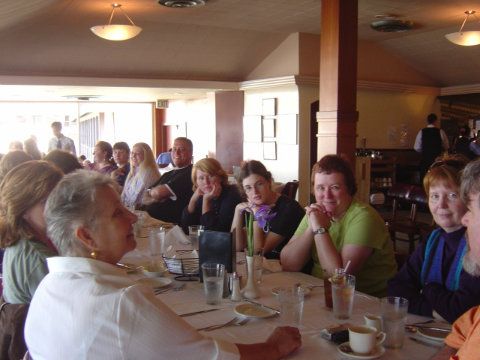I am excited about this reading because it will be the first time that I will be reading The Lord of the Rings as a single volume, rather than as three volumes of one book. As I think I mentioned before, I purchased the 50th anniversary one-volume edition in order to standardize citations to LOTR in my book. But this is the first time that I will actually be reading through that volume. In addition to the Prologue, and the well-known "Foreword to the Second Edition" this edition also has two additional briefs texts as part of its front matter. The first is a "Note on the Text" written in May of 2004 by Douglas Anderson, which details the complicated history of the text of the book after it was completed by Tolkien, and how so many errors ended up finding their way into the text. Anderson also makes a pitch for the value of studying the HoME volumes dealing with the history of LOTR, and I agree with Alatar that it would be interesting to comment on the drafts contained in those books where relevant. The second additional text is a "Note on the 50th Anniversary Edition" written also in May 2004 by Christina Scull and Wayne Hammond, detail their efforts to correct those errors and gain consistency for this 50th anniversary edition. They also reference their then-upcoming Reader's Guide to LOTR, another text that I think will be helpful to reference at times in this discussion. To my knowledge, Alatar is the only other person of those who have thus far expressed interest in participating in this discussion who has this reference book, and so I will try to make any references to it understandable to those who don't have it. But it certainly worth having. I am looking forward to using this read and discussion as an opportunity to take a closer look at it.
The "Foreword to the Second Edition" is probably the first thing that most of us read when we first read LOTR (I doubt that too many people go back to the original first edition). It has always moved me. The opening words really set the tone for the whole work remarkably well
This tale grew in the telling, until it became a history of the Great War of the Ring and included many glimpses of the yet more ancient history that preceded it.
This short statement says so much about the work. I love the "grew in the telling"; it says both that this is a big story, and it also says something about its creation: that it was so much invented by the author, as discovered by him. And it tells us that it is a story about war (really about death), which is critical information. Most importantly, this opening statement presages the depth that makes LOTR so compelling. Tolkien talks a little bit in the following paragraphs about how he wanted to return to his mythology after The Hobbit was published, but after being convinced that there was no chance of publishing that mythology, turned back to the sequel to The Hobbit, only to find the mythology creeping into the new story more and more, and shaping it. Those glimpses of the "yet more ancient history that preceded it is really one of the main keys to the success of The Lord of the Rings, as Tom Shippey describes so well.
Tolkien goes on to describe a bit of the history of the writing of the work, and includes his famous statement about his dislike of allegory and his preference for history, real or feigned. While I don't question the sincerity of this statement, and the fact that the basic tenor of the story was set before WWII even began, it can not be denied that The Lord of the Rings is a timely book; one which (to use Tolkien's word) is tremendously applicable to its time.
And to our time.
Moving on to the Prologue, I'm only going to make brief comments right now. The Prologue has four sections, Concerning Hobbits, Concerning Pipe-weed, Of the Ordering of the Shire, and Of the Finding of the Ring, plus a NOTE ON THE SHIRE RECORDS. To me the importance of the Prologue is mostly that it provides a door to enter into the world of Middle-earth, before stepping fully inside. It is not so much what it says (although it does contain some important information), but more how it is said that is important. I no many people skip this opening portion (and even the opening chapters) but to me it is critical for me to walk through this door before going inside.


